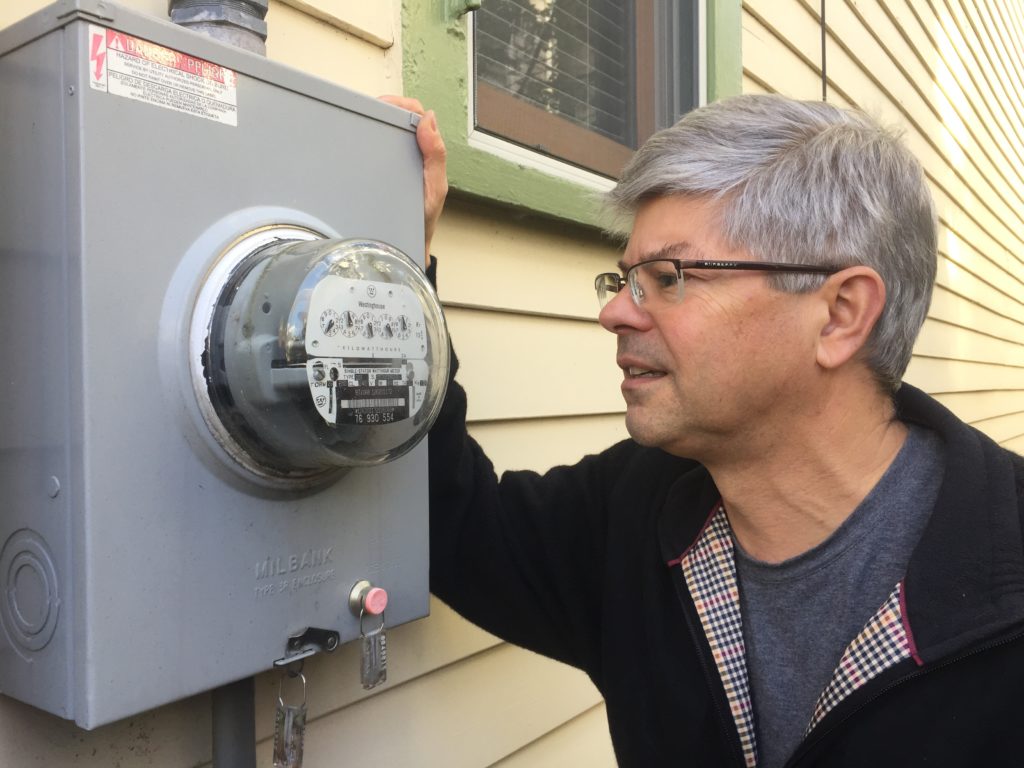
family’s energy consumption and understand how best to save energy. Not yet available in NJ, advanced metering
infrastructure would give him the ability to see how his household’s energy use changes over time.
New Jersey is a state of many “firsts”: the first boardwalk, first copper mine, and first drive-in movie theater. Ironically, our state is the birthplace of modern electricity, but as one of only eighteen states without advanced metering infrastructure (AMI), we are lagging far behind in new utility technology. EELC is collaborating with the Environmental Defense Fund (EDF) to advocate for AMI and smart meters for state residents, which can improve efficiency, reduce electric costs, clean our airways, and even bring in revenue. In 2015, Business Insider forecasted a whopping savings exceeding $150 billion for customers switching to smart meters. By improving efficiency and purchasing electricity when prices are lowest, customers slash dollars off their electric bills. Customers can also sell surplus electricity back to their utility companies and enjoy faster repairs during power outages.
Seeking positive change for state residents, EELC is taking action to bring utility customers maximum benefits at a minimal cost via smart grid technology. In April 2016, Rockland Electric Company (RECO) filed a petition seeking the approval of the Board of Public Utilities to begin New Jersey’s first AMI/ Smart Meter program. We are excited to represent EDF in front of the Board of Public Utilities (BPU), as EDF will bring its national experience with AMI to encourage the introduction of this energy technology to New Jersey.
EDF has already positively influenced AMI proceedings in other states. Its evidence has persuaded the BPU to allow smart metering in California, Maryland, Ohio, and many other states. EDF maintains that smart metering will reduce air pollution, and provide economic benefits by lowering utility bills for homeowners and businesses. Households can even produce and sell surplus energy back to their electric company. Additionally, smart grids have sophisticated sensor systems to detect outages instantaneously. That means that utility companies can restore power quickly to homes and businesses during blackouts and power outages, which translates to less lost work time and safer homes in extreme weather events. Though seemingly complex, smart metering makes all of this possible with a simple phone app.
Presently, says EELC’s senior attorney Raghu Murthy, over 50 million Americans have switched to smart meters. He adds that no utility company in New Jersey has successfully petitioned the BPU to allow smart metering in New Jersey. But RECO could open the door for many more residents in the Garden State to lower their utility bills and control their electric usage.
RECO, which operates in both New York and New Jersey, has obtained approval from the New York Public Service Commission to install smart meters in New York starting in early 2017. If the BPU extends smart metering to New Jersey in the next few months, RECO can install smart meters simultaneously in New Jersey and New York, which will significantly reduce installation costs.
Nationally, smart metering has been supported by other state regulators. Our state’s Energy Master Plan, which guides energy development, also encourages smart metering. It is up to the BPU to decide whether or not to allow smart metering in New Jersey. With the utilities, EDF and EELC all advocating for it in front of BPU, we hope that New Jersey residents will soon have access to an electrical metering tool that residents in other states have benefited from. With a wise move towards progressive utility technology, New Jersey will see significant cost savings, cleaner air, and reduced dependency on fossil fuels.



